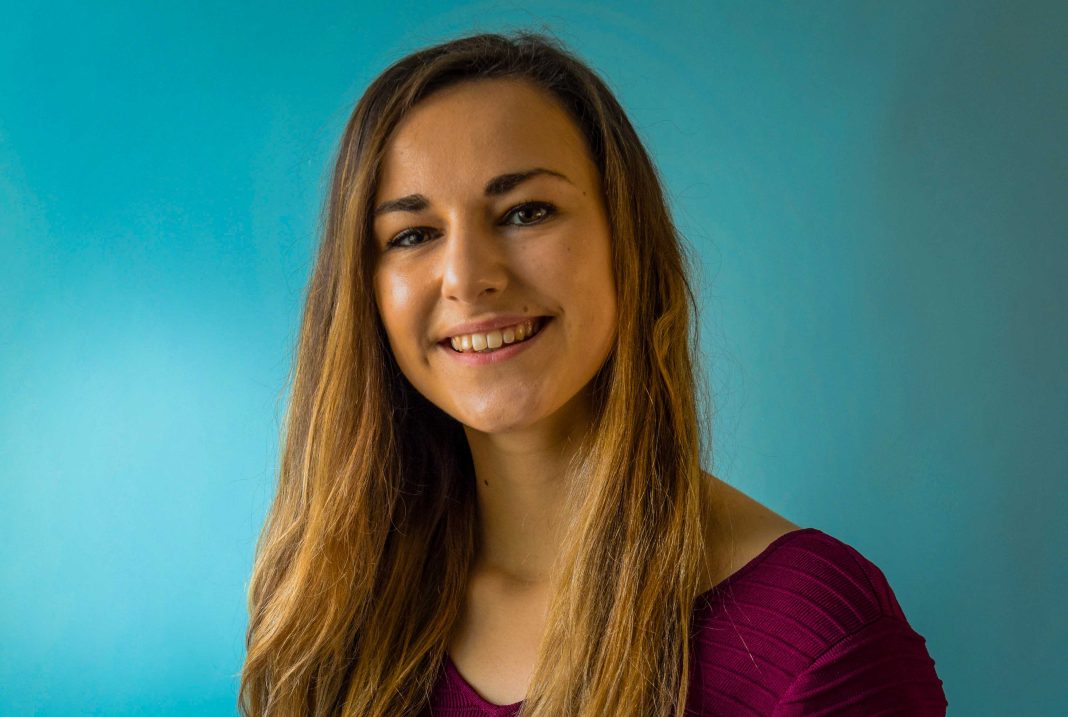Politics is one realm that can open a lot of doors to sustainability in our cities. But whether it’s because they are disillusioned, disinterested, or feel excluded, many people do not use their voices to influence local decision-making. Eva de Bruijn, leader of the GroenLinks party in the Dutch city of Eindhoven, has made it a priority to increase citizen engagement among people who don’t feel heard. We ask how she does it and what a city is set to gain from such policies.
Let’s be blunt: we stand at the juncture of multiple crises, including inflated cost of living, culture wars, soaring energy prices, and climate breakdown.
It seems that more than any other demographic, young people especially have had enough of governments and financial institutions gamble with their futures by green-lighting and bankrolling fossil fuel projects.
Their frustration is understandable. But what can we do about it?
Young People, New Politics
Eva de Bruijn is an example to us all, and a positive influence – especially for young people. At just 25, in 2022 she was elevated from council member to the position of chairperson – local branch leader – for GroenLinks, Eindhoven’s green party.
She attributes the overwhelming result of GroenLinks’ (and her own) proven track to the city’s need for green, social, and progressive politics.
Her success at the election proved that green politics is no longer just seen as idealistic; it is a legitimate contender.
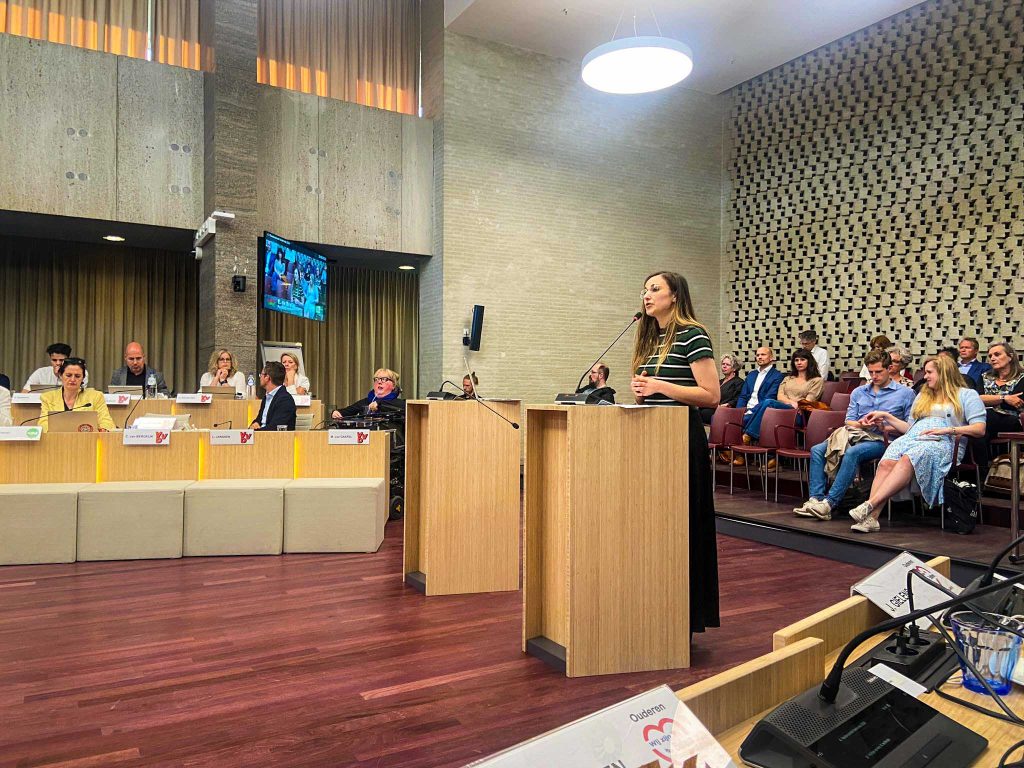
Doing Good Can Do Well
At the heart of GroenLinks – translated from Dutch as ‘Green Left’ – is a combination of green and social politics, which they view as closely aligned agendas.
“We find it really important to fight for a fair and progressive and sustainable society,” Eva explains.
My ideals are really fighting climate change in a society where everyone can participate.
Eindhoven is one of the biggest cities in the Netherlands – a wealthy European country – but that doesn’t protect people from inequalities and deprivation.
Keen to learn about people’s experience with the energy crisis, Eva and her colleagues went door to door.
Some people she spoke to benefit from solar panels on their roof, or fixed energy contracts. But there was another side, too. “We also heard a lot of heart-breaking stories,” she remembers.
Eva was appalled by the state some people had to live in.
One elderly lady could only afford to eat bread because the price of gas was too high for cooking. Another resident, who suffered from a degenerative muscular disease, was forced to choose between going hungry or being cold; they couldn’t afford groceries on top of their rent and energy bills.
We really have to take action now!
GroenLinks: Engaging a New Generation
For transformations to occur and take hold, Eva realised, they must reflect the needs of whomever they’re intended to help.
However, gathering this intel would be tricky. From her own experiences, she knew that certain groups were on the outskirts of politics.
“When I came to Eindhoven as a student, I questioned why my opinion should be important. ‘I’m just new here. My voice doesn’t matter.’”
It’s a mindset our CityChanger sees is rife among migrants, too. And, like Eva did, they doubt the impact they can have on local politics – and the impact local politics can have on the issues that really matter to them.
But she also knows these doubts are unfounded. That’s why she’s pledged to turn the situation around, by working with,not just for, them.
I don’t believe in the old-fashioned authority. I really believe in the bottom-up approach.
This is an idea practiced in other cities, which Eva was exposed to at the inaugural Urban Future Young Leader’s Programme in Oslo, 2019. It influenced her approach to leadership.
A key skill for future leaders, she believes, is collaborative change.
Rather than being prescriptive, Eva adds, politicians should be catalysers, enabling citizens to be part of the solutions cities require.
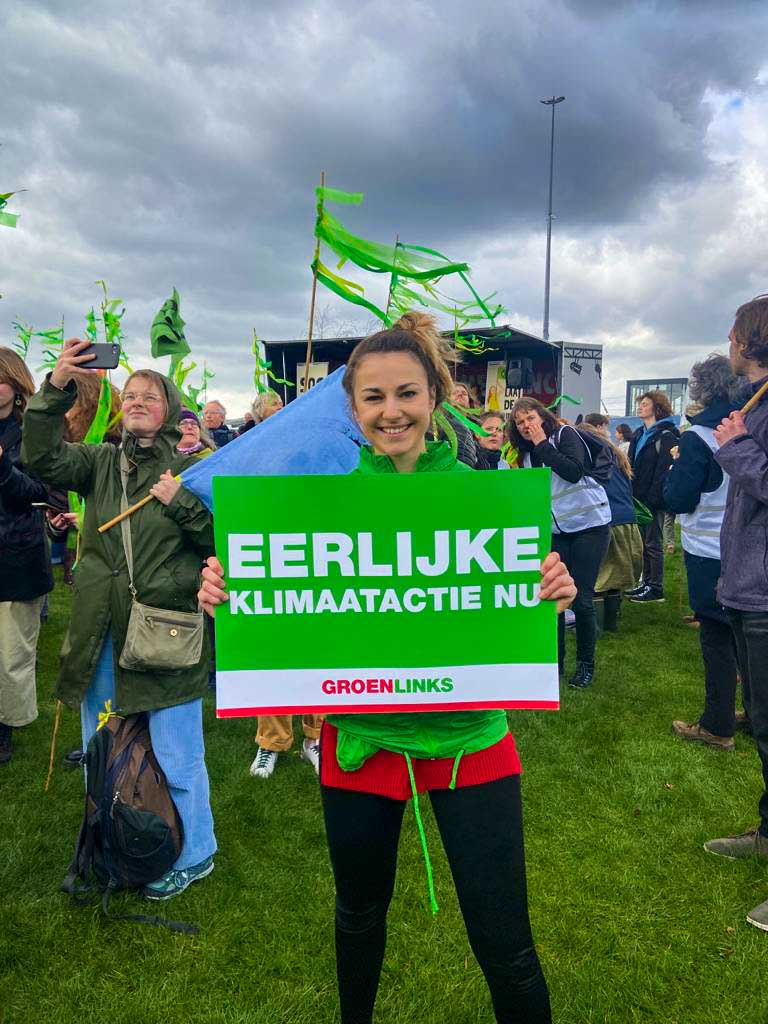
Image credit: GroenLinks 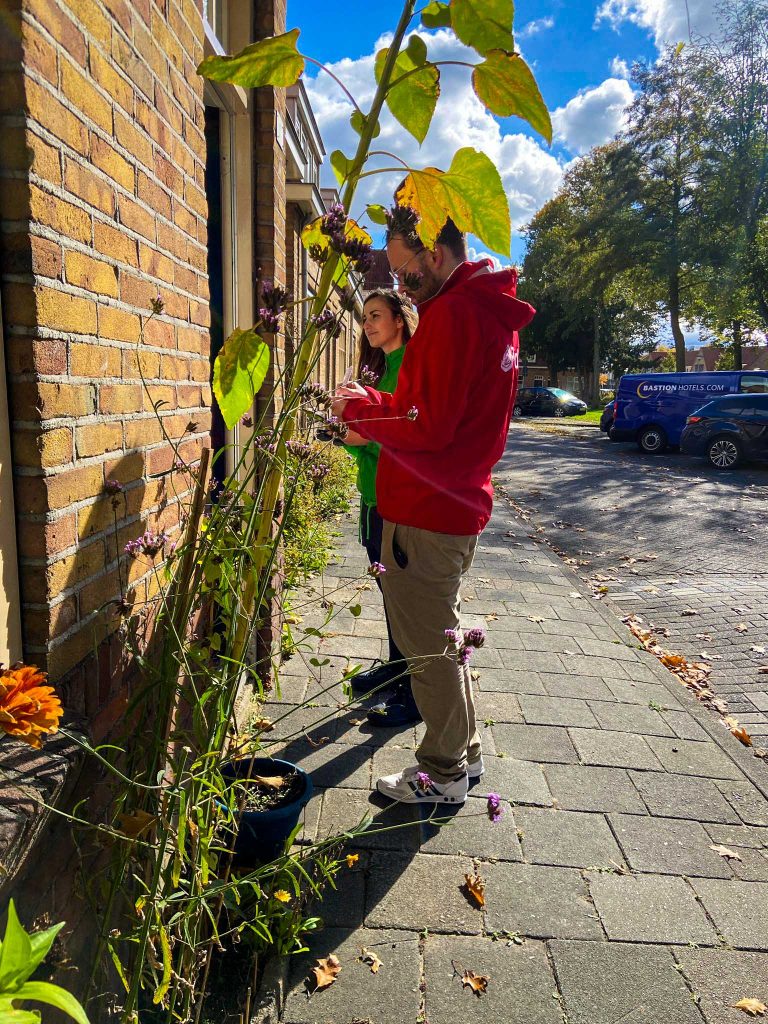
Image credit: Eva de Bruijn
Amplifying Voices with Social Design
Eva’s other role, a social designer, was a perfect match.
A social designer’s purpose, she explains, is to “design creative solutions and tools” that tackle prominent challenges. The result could be a new idea, direction, or creative product such as an event, game, or even an app.
Social design is a form of participation, in which communities – especially vulnerable groups – are guided to “use their perspectives to untangle societal problems and the underlying needs”.
They design not only the final product, but also the participatory process itself. The impact is intended to be direct and local, but it ideally creates ripples that also bring about systemic change.
Connecting Cultures
Eindhoven had been privy to Eva’s social design skills before.
In 2015, like much of Europe, the Netherlands was in the midst of another crises: an influx of refugees. At the time, our CityChanger was studying industrial design at university.
Being a humanitarian, Eva wanted the people fleeing persecution and hardship to feel welcome in their new home, so she set out to help them connect with Dutch society.
While researching for her bachelor thesis, Eva discovered that people commonly want to build new connections – friendships, even – but cultural differences make it difficult.
So, she found a safe space and invited the newcomers – refugees, migrants, and international students – and long-term residents to meet, talk, get to know each other’s perspectives, and to form a basis for mutual understanding.
Over time, this process developed into Connecting Cultures, a toolkit that facilitates a playful way to break down barriers and build social cohesion.
It was also the basis for Eva to start a side project, Studio Connecting Cultures, which she conducts alongside her job as a social designer for a small design company called We Are Social Rebels and her duties as a councillor.
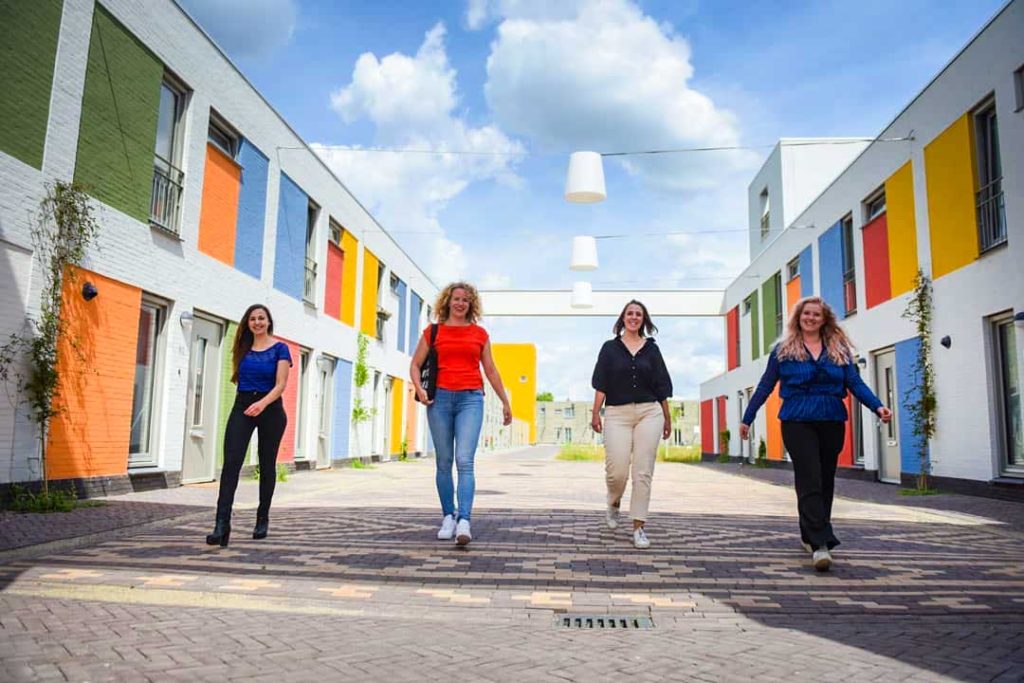
Power of the Youth Movement
It was 2018 when Eva first became a city council member. One of her first priorities was to encourage young people to get more involved in local decision-making.
Alongside social media– which, she is quick to point out, should not be the only route we take – she met with people personally. This included visiting student initiatives and collaborating with youth workers who, like her, were trying to help young people with the big issues in their lives, such as housing, mental wellbeing, and climate initiatives.
The first step to engagement, Eva teaches us, is that “it’s important that you know which communities are in the city, and that you know your ways and entrances to these communities”.
I find it really important to go there physically and talk with these communities and make sure that they feel listened to.
Young people were not only heard by GroenLinks, but they were also empowered.
By establishing the Young Ambassadors programme, Eva gave grounds for groups of 16-24-year-olds a chance to hash out ideas for involving and benefitting their peers. Gone was the concept of stuffy meetings in the town hall; they chose to gather for pizza and brainstorm sessions. With the guidance of Eva and the co-initiators, they were able to present their ideas to local politicians.
It has become a prominent fixture in Eindhoven and “attracts a broad diversity of youngsters”. New, varied perspectives now have a voice at the table.
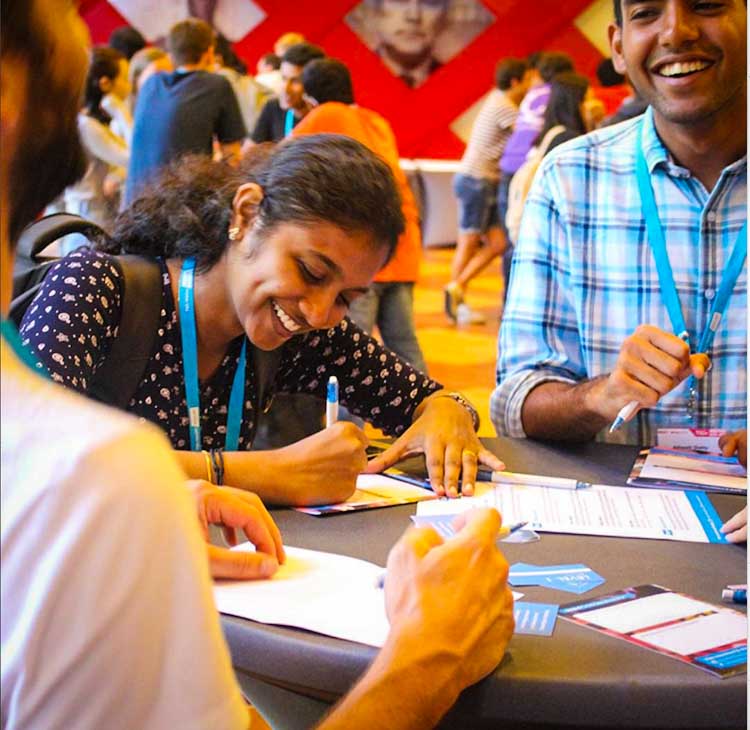
A New Generation of Party Politics
Eva is now at the helm of Eindhoven’s branch of GroenLinks, which has implemented tangible projects that support the city’s vulnerable people and initiated a fresh approach to municipal politics.
For example, all municipal departments in Eindhoven – dealing with everything from the economy and housing to mobility, safety, and social affairs – are to be assigned their own climate goal, prompting them to scale back their individual and combined contribution to climate change.
For citizens, the city now offers all households a free ‘Energy Box’, full of practical energy saving tools. Contents include LED lights and foil for insulating radiators.
Additionally, the city offers the services of energy coaches on request, who visit households to provide personalised advice. Having someone available to demonstrate the energy saving measures and answer questions is particularly effective.
“What is nice,” Eva explains, “is that those energy coaches are people that had difficulties to find a job.” They have been trained and employed by the city, getting them back into the job market equipped with valuable skills: mixing green and social solutions.
For Eva, this hits on another really important point: “I’m proud of these green and social solutions. However, we will not fight poverty and climate change with radiator foil only. We need vigour, laws, and money from the national government to be able to insulate enough homes and make a big impact.”
The Meaning of Happiness
All this is happening against a backdrop of growth for Eindhoven.
Due to the presence of high-tech industries, it’s the fastest growing economy in the Netherlands. “We are the smartest region of Europe, people say.” As a hotbed for smart tech innovation, where companies, knowledge institutions, and the government are collaborating, Eindhoven is sometimes referred to as the “Brain-Port”.
But this presents other challenges.
One issue is making this align with the city’s selection from the EU Mission to become a climate-neutral and smart city by 2030. To hit this target, the municipality is putting together a climate plan for green, innovative, and behavioural changes.
Furthermore, Eindhoven’s Brainport Social Agenda hopes to ensure that the companies that profit from this explosion of growth start to take responsibility for any negative side effects it has on people and the environment. These may be challenges that arise in housing, social security, or cohesion in the neighbourhoods.
“My wish is that industry will contribute to the fundamental solutions of these challenges. For example, by offering decent jobs, fighting discrimination in the labour market, contributing to neighbourhood projects aimed to welcome and connect newcomers, or making the transformation to green jobs.”
Measuring Wellbeing
It has also seen the introduction of a creative way to measure success: wellbeing.
There’s a “nice Dutch word” for what Eva’s talking about: Brede welvaart.
There is a new way to work together with companies, but also to look at what you want to be as a city and not boost economic growth central, but the wellbeing for our people and planet.
The trouble with this, of course, is how difficult wellbeing is to measure.
Eindhoven has therefore developed a welfare monitor, rating several aspects of wellbeing, “ranging from the environment to safety”. With this in place, the municipality hopes to establish harmonious development in economic, social, and environmental health.
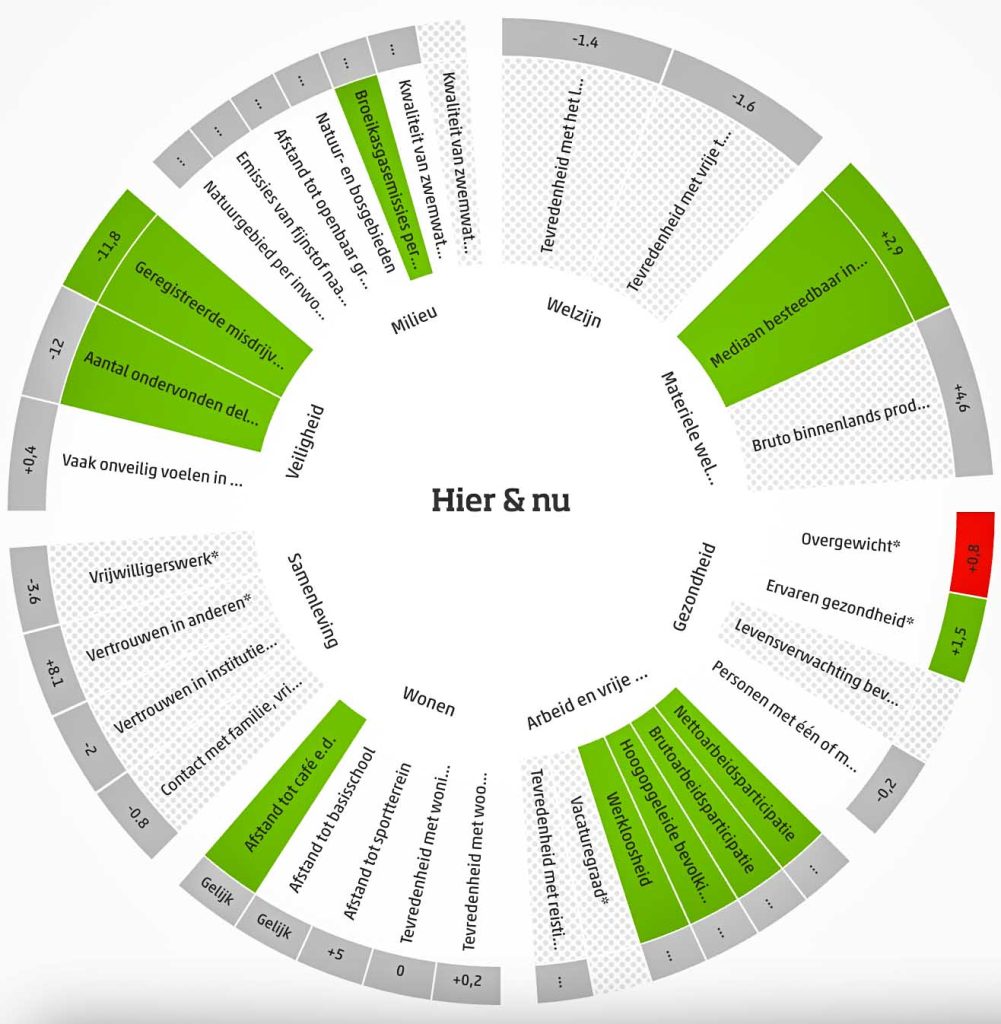
Such seismic systemic changes might be frustrated, however – if not in Eindhoven, then at least for other cities that want to follow their lead.
While the local government is tilted towards green and progressive politics, the Netherland’s national assembly is not. “It’s really right wing and neoliberal,” Eva informs us.
This affects whether there is enough money for an energy transition or insulating houses. It also impacts the laws regarding social security, which are now – Eva says – based on mistrusting people.
“In the end,” our CityChanger explains, “we also need the laws, the money of our national government to really tackle the climate change, for example, and to really make sure that people are not living in poverty.”
If anything, Eva points out, this should be even more reason for young and marginalised people to get involved in progressive politics.
“Your perspective matters,” she reiterates. “It’s really important to have the future represented in the decision-making process.”
For those not cut out for city council, there are plenty of ways to be active, she advises, such as contributing to a political campaign or joining youth organisation.
Eva suggests writing a manifesto of your own, signing a petition, or going to a demonstration; these all send strong messages to city leaders – and our peers.
Be aware that your perspective matters, and that you actually can bring something new into the decision-making process.
Experience is not necessary. What’s important is finding “which political party fits your ideals and your view on society”.
Casually meet with a representative to ask how you can get involved. “Local politicians are way more approachable than you think.”

